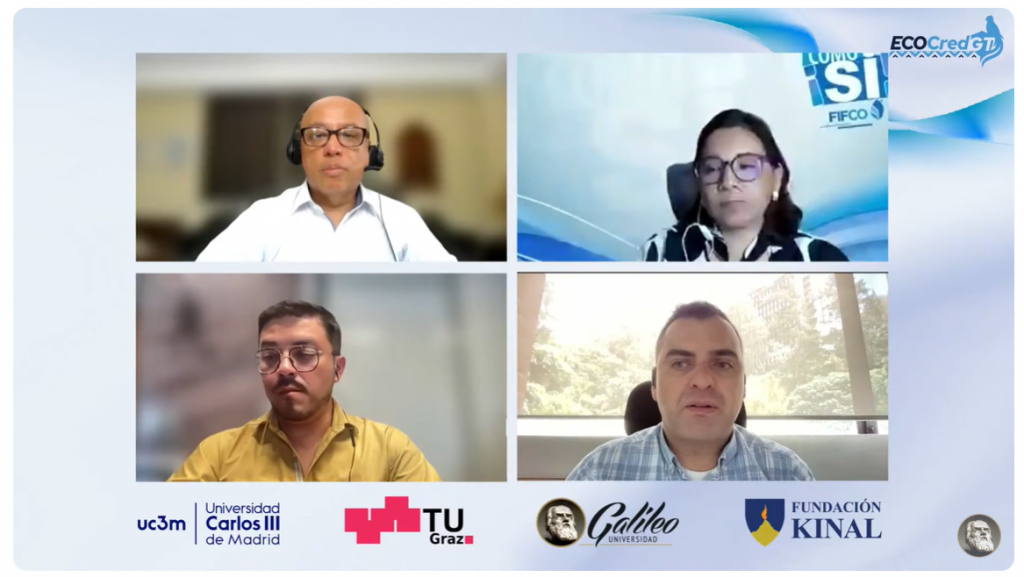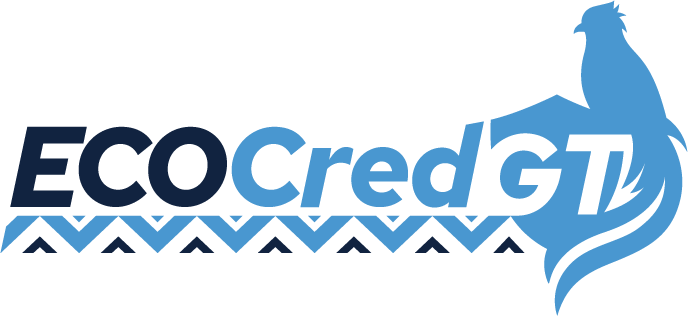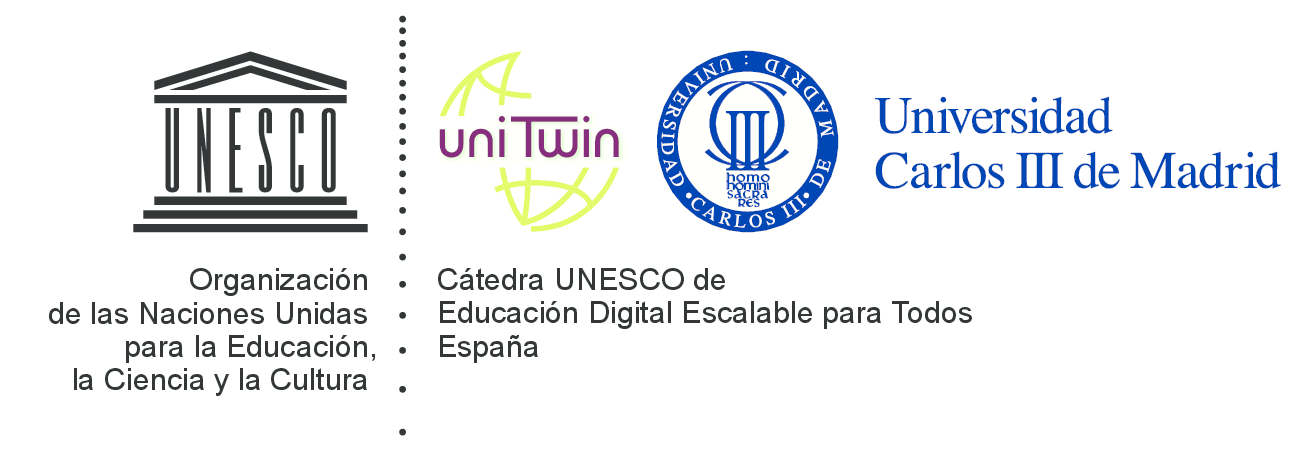On Wednesday, July 2, 2025, the fourth and last webinar of the training cycle organized by the ECOCredGT project was held under the title: “Digital credentials: transforming the access and dynamics of the labor market”. This session focused on the role of digital credentials in the visibility of competencies and the generation of job opportunities, especially for young people and technicians in search of their first formal employment experience.
Unlike previous meetings, which focused on the technical structure and institutional design of credentials, this session addressed their practical use in real hiring scenarios, emphasizing the need to build bridges between educational paths and market needs.
Jobs don’t wait: credentials connecting training and employment
During the webinar, a key question was raised: how can a digital credential have a concrete impact on the hiring of a person? Based on this concern, real cases and functional models that are being applied by companies, technical training institutions and job placement programs were explored.
Experiences were presented that demonstrate how digital credentials enable:
- Validate specific skills acquired in formal and non-formal environments.
- Reduce the gap between the academic curriculum and the profiles required by the productive sector.
- Streamline selection processes, offering immediate, verifiable and transparent evidence of declared competencies.
This direct relationship between credentials and employability was illustrated with models adopted by global companies, and with strategies that can be adapted to local contexts, particularly in Latin American countries still facing high labor informality.
Guest Expert

MSc. Eduardo Veliz
Master in International Development Cooperation. Project Manager at Fundación Kinal. His experience is focused on the development of educational and technological projects with social impact, as well as institutional management. He is a lawyer and notary, and an active member of the Information and Informatics Commission of the National Secretariat of Science and Technology (Senacyt). He participates in the EcoCredGT project (Erasmus+).
One of the most powerful messages of the webinar was that each digital credential must tell an authentic professional story. It is not only about recording academic achievements, but also about giving visibility to learning processes that have value in work contexts: soft skills, technical skills, performance-based certifications, among others.
In this sense, digital credentials also serve a social function: they contribute to reducing inequality in access to job opportunities, particularly for young people who have not had access to traditional degrees, but who have skills validated in other areas.
Perspective from experience

National and international companies
During the webinar, experts from national and international organizations offered their perspectives on the value of digital micro-credentials. From their experiences in technical training, international cooperation and talent management, they agreed that these credentials allow certifying specific skills in an agile and recognizable way, facilitating labor market insertion and professional mobility. They stressed that their impact depends on the clarity of the issuance criteria, the interoperability between systems and their recognition by the productive sector, especially in contexts where youth employability is a priority.
If you were unable to join us live, access the full recording here:




